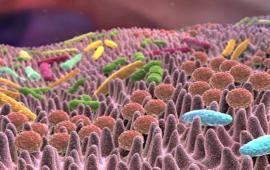
Multiple Sclerosis Natural Treatment
Multiple sclerosis is an inflammatory and neurodegenerative disease with an autoimmune response against the myelin sheaths of the central nervous system. It causes symptoms such as optic nerve involvement, fatigue, spasticity, loss of sensitivity and loss of motor skills.
Different risk factors have been postulated such as Epstein Barr virus infection, vitamin D deficiency and genetic factors, among others.
The usual medical treatment is corticosteroids in acute outbreaks and immunomodulators such as interferon beta to prevent outbreaks.
In recent decades there has been a growing interest in the beneficial role that some vitamins, omega 3 and the intestinal flora can have, with a proliferation of studies that attempt to demonstrate the benefits of supplementation with vitamins, omega 3 and the regulation of intestinal flora.
The prevalence of multiple sclerosis correlates with latitude. Exposure to ultraviolet B rays from the sun is essential for the activation of vitamin D, and it was observed that vitamin D levels in patients with multiple sclerosis were often insufficient.
On the other hand, although more than 90% of the general population has antibodies in the blood for the Epstein Barr virus, it seems that in patients with multiple sclerosis the antibodies are present in almost 100% of cases.
There is a statistical correlation between the prevalence of infectious mononucleosis in places where exposure to sunlight is low, so it is suspected that the role of vitamin D in the immune response would play a crucial role.
In my experience, multiple sclerosis has an important correlation with poor functioning of the digestive system. It is common to find alterations in the intestinal flora and the suspicion of a leaky intestine. Therefore, diet becomes a fundamental pillar of support for this disease, when carried out strictly, a lengthening of the periods between outbreaks and an evident decrease in their intensity are observed.
Bibliography:
- Vincent C. Lombardi, Kenny L. De Meirleir. Nutritional modulation of the intestinal microbiota; future opportunities for the prevention and treatment of neuroimmune and neuroinflammatory disease. The Journal of Nutritional Biochemistry, Volume 61, 2018, Pages 1-16, ISSN 0955-2863
- Bjornevik, K., Myhr, K.-M., Beiske, A., Bjerve. α-Linolenic acid is associated with MRI activity in a prospective cohort of multiple sclerosis patients. (2018) Multiple Sclerosis Journal. doi.org/10.1177/1352458518779925
- Ghareghani, Majid et al. “Latitude, Vitamin D, Melatonin, and Gut Microbiota Act in Concert to Initiate Multiple Sclerosis: A New Mechanistic Pathway” Frontiers in immunology vol. 9 2484. 30 Oct. 2018, doi:10.3389/fimmu.2018.02484
- McLaughlin L, Clarke L, Khalilidehkordi E, Butzkueven H. Vitamin D for the treatment of multiple sclerosis: a meta-analysis. J Neurol. 2018 Dec;265(12):2893-2905. doi:10.1007/s00415-018-9074-6. Epub 2018 Oct 3.
- Pérez-Pérez S, Domínguez-Mozo MI, García-Martínez MÁ. Study of the possible link of 25-hydroxyvitamin D with Epstein-Barr virus and human herpesvirus 6 in patients with multiple sclerosis. Eur J Neurol. 2018 Dec;25(12):1446-1453. doi: 10.1111/jan.13749. Epub 2018 Aug 3.
Ask for opinion and find an appropriate solution to your problem
ONLINE Doctor Consultation


